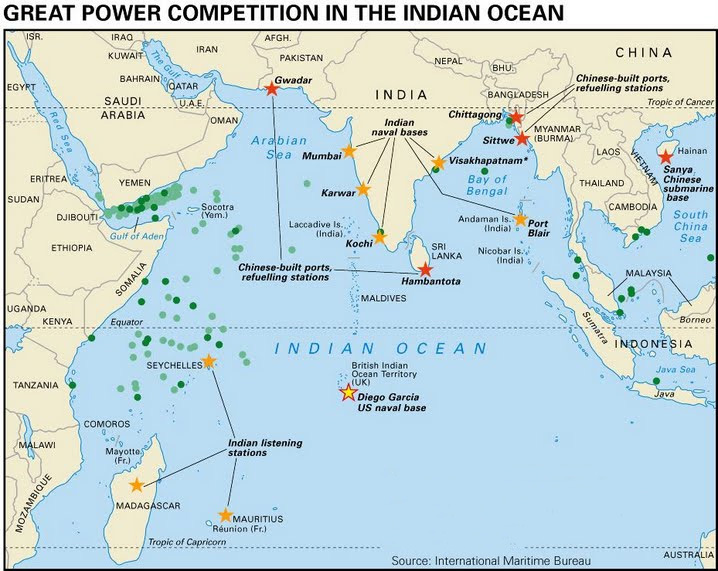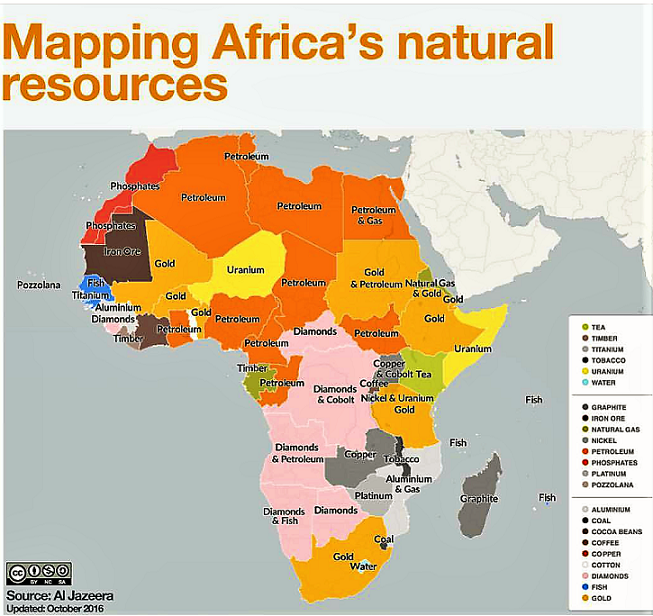 Mohsen Abdelmoumen: Your book « Conjuring Hitler » received a laudatory criticism of our friend Peter Dale Scott. Moreover, I share the view of this great intellectual on the fact that this book is essential in the work of historical research. How did you arrive at conclusions against the flow of the historians of the establishment, namely that Hitler was made by the United States and Great Britain and that World War II was inevitable?
Mohsen Abdelmoumen: Your book « Conjuring Hitler » received a laudatory criticism of our friend Peter Dale Scott. Moreover, I share the view of this great intellectual on the fact that this book is essential in the work of historical research. How did you arrive at conclusions against the flow of the historians of the establishment, namely that Hitler was made by the United States and Great Britain and that World War II was inevitable?
Dr. Guido G. Preparata: I started out like most westerners, whose childhood was steeped in the typical propagandistic “currents” of the Cold War: by watching, endlessly and enthusiastically, epic pro-Allies and anti-German war movies. My parents —postwar Italians— were solidly in the pro-US, pro-Israel, pro-capitalist camp, and my father, an academic physicist, was then militantly anti-Communist. That is what I grew up with. We were enthusiastic “Americanists,” and were awed by British “class.” Though superficially proud of our “classical,” “Greco-Latin” heritage, we, deep down, suffered from the typical inferiority complex exhibited by nationals of spiritually defeated, irrelevant countries.
Then the Berlin Wall came down and most of us slowly began to unravel from some kind of stupor. When I began working at the central bank of Italy in the mid-90s, I chose in my free time to tap the Bank’s library in order to study Nazi Finance, which I saw as an esoteric and exotic theme. And from there, I started digging. What I remembered from those war movies I saw as I child was the narrative, always the same, and the point of attack: the action begins when these monsters (e.g., the SS) are already fully formed and extraordinarily truculent, vicious. That makes for great cinema, of course, but it begs far bigger questions: how did that happen? How did this phenomenon emerge? How did the world allow that to happen? How could this be?
I spent 10 years of my life reading and thinking about this.
I collected material and archival documents in Germany and at the Bank of England, talked to people, experts, politicians, etc. The result of all this is Conjuring Hitler.
And what I found is that, although the phenomenon of Nazism itself —its deep, esoteric roots—is indubitably German, in ways we have yet to understand fully, the (political and economic) conditions in which it was allowed to breed, to incubate had been, in my view, unquestionably favored, predisposed by Britain, and to a less extent by the USA, though later in game, and always under the strategic, unchallenged leadership of Britain.
Why Britain? Because she was and, in a way, still is, the mistress of world. This is her time. She rules, and, apparently, she will do anything in her might to keep that power. Today, the US, as we all know, is simply continuing in the geopolitical tracks of the British Empire.
Was the war inevitable? Yes it was: when in 1900 Germany thought she could challenge Britain’s mastery, the latter, clearly, had to act. If you add to this that Germany’s eventual supremacy, through clever strategizing, could have entailed a harnessing of Russia to “Teuton” martial and technological initiative, then you could envision what was for British circles the ultimate geopolitical nightmare: a “Eurasian Alliance,” which would have been, de facto, invincible. And the carnage that ensued in the first half of the 20th century is the chronicle of the pre-emptive move the British were “forced” to set in motion in order to avoid the materialization of this scenario.
“They” say: when she started rocking the boat in 1890-1900 or so, Germany was belligerent, militaristic, aggressive, and imperialist. Absolutely. And Britain, I may add, a thousand times more so. In 1914, Germany wanted a “fast war” to consolidate what appeared like a middle-European kingdom with colonial annexes. She got Britain’s war instead: the Great War.
You demonstrate with pertinence Hitler’s ties with the ruling classes in Great Britain and the United States. However, you are focusing on the role of Great Britain. Can you explain us why?
For the reasons just explained. For the past 200 years we are playing England’s game, none other’s, really.
How do you explain that these two powers, the United States and Great Britain, who financed and supported Nazism, developed a propaganda machine via Hollywood that gives them the best role by showing them anti-Nazi?
Well, when in 1916-1917 the Eastern front fell with the defection of Russia, England brought in the US. Eventually Germany, feeling overwhelmed —for WWI was essentially a siege, a siege around Germany— surrendered. Which implied that she had not been defeated on her own soil.
In other terms, the German/Eurasian menace had not been annihilated once and for all. To that end, a scheme began, which lasted essentially 20 years; and the scheme was 1) to revamp Germany (“set her up,” truly) and 2) destroy her, again, in a two-front war.
That this was indeed planned is testified by Thorstein Veblen’s extraordinary 1920 prediction, according to which the true design of the Treaty of Versailles was to incubate a reactionary regime in Germany through a radicalization of the middle-class, and finally unleash this new force against Soviet Russia, which prediction came to pass in June 1941. This is sensational. To my knowledge, I am the only one who has had the decency to cite this unique, genial testimony.
But things evolved more wildly than even a genius like Veblen could have foreseen. The movement whose ascent he prophesied was not just “reactionary”: it was something altogether new, different, more sinister and fiendish. The Nazis swallowed up the old monarchist guard, which, by 1932 had come to attract less than 10 percent of the popular vote.
And, as for demonizing the vanquished enemy, the Germans could not have made Anglo-America a more glorious gift: it is as if they gratuitously and catastrophically cast themselves as the Anti-Christ, really. Which, conversely, implied that Anglo-America’s troops and commanders had to be the legions of God. The latter were also the Techno-knights of Hiroshima, as I like to call them, and I am not sure what God has to do with any of this. I rather see the Devil’s footprints everywhere.
Be that as it may, at this point, the victors had the most powerful narrative, the most powerful militant myth one could think of: i.e., the crushing of the demoniacal Nazis as a God-given, manifest acknowledgement of their (the Allies’) spiritual superiority, of their deserved triumph. In the mythological name of which, in fact, they are still waging wars around the world, to this day, with impunity. For human rights, democracy, and peace-keeping, “they” say.
This narrative is the most wonderful piece of propagandistic capital one could possess: it has yielded, and still yields phenomenal rents.
Any attempt to “revise” it will be met with the most violent and categorical castigation. And any historical evidence running against it will be suppressed or “interpreted” in ways congruent with the official version, naturally.
I don't think you understand how the global banking system works. The Russian Central Bank is a member of the Bank of International Settlements. It is not independent and follows the policies the City of London (or whichever cabal is in power).
There is no other central bank in the world that would not be allowed to support the national economy. The Russian Central Bank is the only exception. This is a specific peculiarity of the Russian Central Bank. The law even says that the bank is a branch of foreign companies in Russia. For example, the Russian Central Bank is a depositary of the IMF. The law of the Central Bank does not have a word about the Russian economy. Yet, it contains detailed instructions on how to follow and execute instructions from abroad. The law was made during the 1990s. Putin tried to amend it in the 2000s, but it did not work out. As a result, the Central Bank of the Russian Federation works for a foreign country under the Russian Constitution. This state imposes sanctions on Russia. The Russian Central Bank is obliged to execute instructions from the USA - the Americans set an official task to weaken the Russian economy
The potential disconnection of Russia from SWIFT has been under discussion since 2014, when the EU and the US introduced the first round of international penalties against Moscow over alleged involvement in the Ukraine crisis and the reunification with Crimea.
i think the financial world is more complicated then many might want to entertain... you might find this pdf link on rouble nationalization (http://lit.md/files/nstarikov/rouble_nationalization-the_way_to_russia's_freedom.pdf) educational... it is a pdf of the book which has been out for a few years.. i have read parts of it, but not all of it..







 Reply With Quote
Reply With Quote








 Part I of the George Ann Hughes radio interview on "Financial Vipers of Venice"! I'm sure we've all been there.....so tired that everything is funny!! I'll have to watch Part II tomorrow!
Part I of the George Ann Hughes radio interview on "Financial Vipers of Venice"! I'm sure we've all been there.....so tired that everything is funny!! I'll have to watch Part II tomorrow! 





Bookmarks